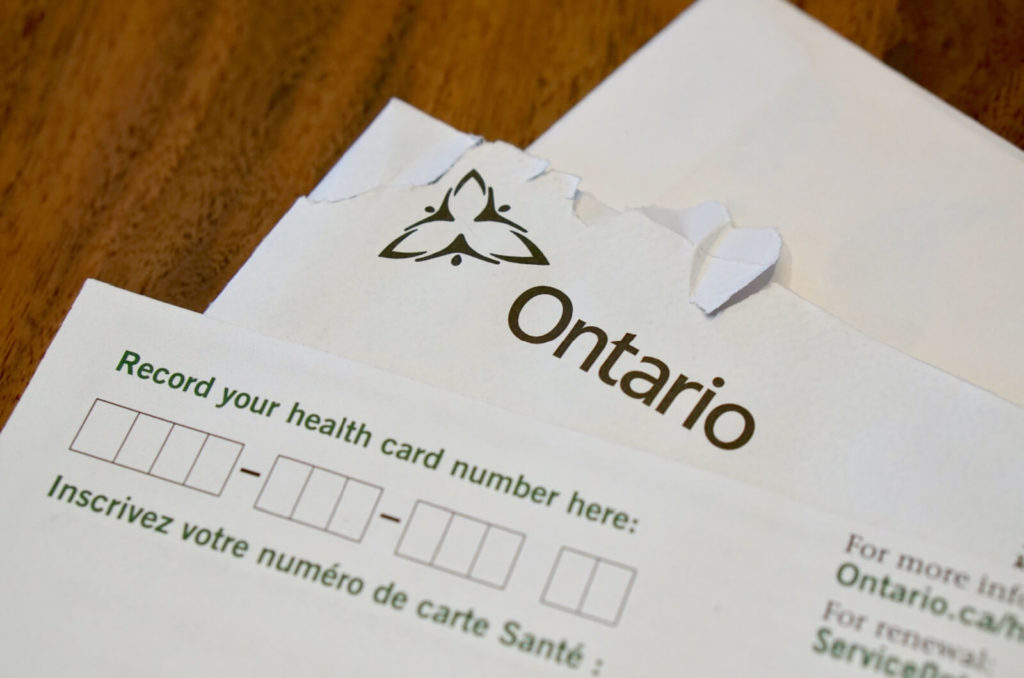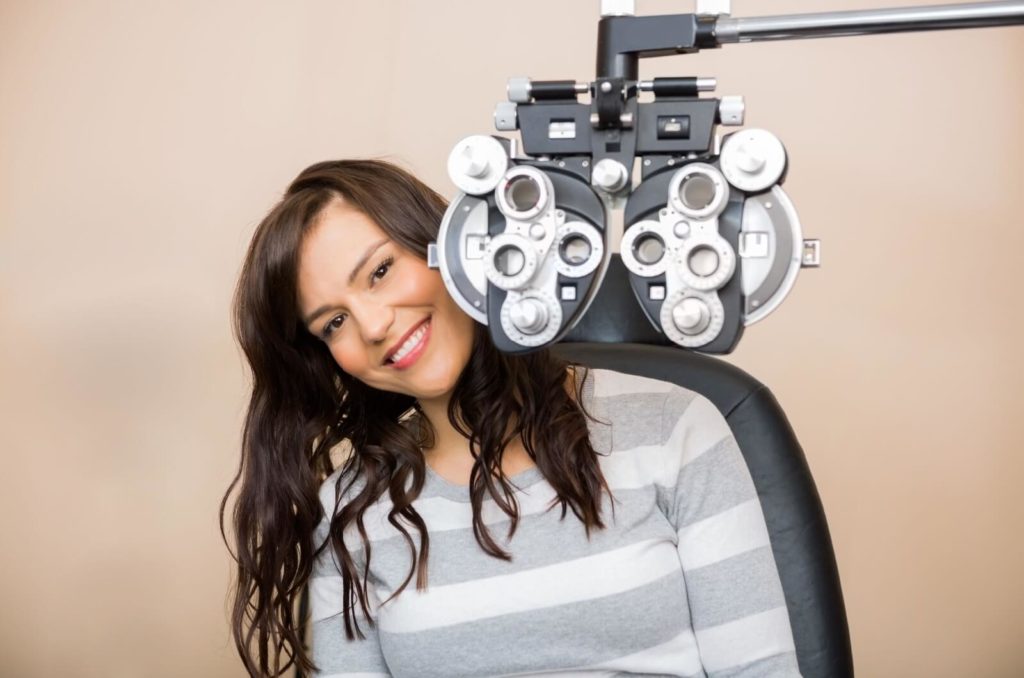Eye exams are an important part of maintaining good eye health. In Ontario, Canada, the cost of an eye exam can vary depending on factors such as location, type of exam, and additional services or tests required such as advanced diagnostic retinal imaging
In general, the cost of an eye exam in Ontario ranges from CAD 75 to CAD 250 This price can fluctuate based on the optometrist’s experience, the clinic’s location, and the complexity of the examination.
For individuals under 20 comprehensive eye exams are covered every 12 months. For over 65, comprehensive eye exams are covered by the Ontario Health Insurance Plan (OHIP) once every 18 months, and up to 2 follow-up assessments that may be necessary.
Types of Eye Exams
There are two main types of eye exams: Comprehensive and a basic sight test.
A comprehensive eye exam is a more thorough examination of your eye health and can take up to an hour to complete. It includes tests such as:
- General health review: Review of your general health history as this can impact your eye health.
- Visual acuity measurement: Measures how well you can see at various distances.
- Refraction measurement: Determines the strength of your eyeglass or contact lens prescription.
- Eye movement evaluation: Evaluates how well your eyes work together (binocular vision).
- Slit lamp exam: Evaluates the health of your cornea, conjunctiva, lids, iris and natural lens
- Dilated Retinal exam: Examines the health of your retina, optic nerve, and blood vessels.
- Vision needs: (Home, work, leisure)
On the other hand, a basic sight test typically takes less than 20 minutes and is mainly focused on checking your vision and determining your optical prescription. It does not include the detailed eye health assessment that a comprehensive eye exam does.
Additional Services & Tests
Aside from basic and comprehensive eye exams, some additional services and tests may be recommended by your optometrist. These include:
- Contact lens fitting: If you are interested in wearing contact lenses, a separate fitting appointment is required to determine the right contact lens design for your prescription and lifestyle..
- Digital retinal imaging (Optomap): This procedure uses a specialized instrument used to take high-resolution wide field images of the back of your eye, allowing your optometrist to detect and monitor any changes in your eye health over time.
- OCT scan: OCT works similarly to an ultrasound. It provides real-time images of your eye’s internal structures like an ultrasound, but OCT uses light waves instead of sound waves. These light waves illuminate and scan your retina, giving your optometrist a microscopic view of the layers of the retina aiding in the early diagnosis of macular degeneration and glaucoma.
- Visual field test: A visual field exam assesses peripheral vision, with each eye evaluated separately. The test can indicate if your field of vision is affected by an eye condition or disease, including glaucoma.
- Colour vision test: Checks for vision deficiencies which can affect a person’s ability to distinguish between certain colours.

OHIP Coverage for Eye Exams
In Ontario, most basic eye exams are covered by the Ontario Health Insurance Plan (OHIP) for individuals under the age of 20 and over the age of 65. However, OHIP does not cover additional services or tests such as contact lens fittings or digital retinal imaging, visual fields.
In addition, OHIP does not provide coverage for most adults ages 20 to 64 unless they are living with certain health conditions such as:
- Diabetes
- Advanced Cataracts, Vision less than 20/40
- Progressive or new Retinal diseases
- Glaucoma
- Progressive Corneal disease
- Active Uveitis
- Optic nerve pathway diseases
- Sudden strabismus, sudden onset of an eye turn.
Adults taking certain medications may also qualify for OHIP coverage for routine eye exams.
It’s important to note that OHIP coverage for eye exams may vary in other provinces and territories. It’s recommended to check with your local government for specific coverage details.
Private Insurance Coverage
Many employers offer private insurance coverage as part of their employee benefits package. Some private insurance plans may cover additional eye exams, services, and tests not covered by OHIP.
It’s important to review your insurance policy or contact your provider to understand what is covered under your plan. In some cases, you may need a referral from your family doctor before booking an appointment with an optometrist.
Financing Options for Eye Care in Ontario
If you do not have private insurance coverage and cannot afford to pay for eye care out of pocket, some financing options are available in Ontario:
- Ontario Works: This program provides financial assistance to low-income individuals and families. If you are eligible, they may cover the cost of eye exams and certain treatments.
- Eye See…Eye Learn: Created for kindergarten students in Ontario, Eye See…Eye Learn provides free eye exams and eyeglasses for those who need them.
- Canada Pension Plan Disability Benefits: If you receive these benefits, you may be eligible for coverage of eye care services.
- Trillium Drug Program: This program provides financial assistance to individuals who have high prescription drug costs relative to their income. If your eye care medication is not covered by your private insurance, this program may cover it.
It is important to remember that each individual’s financial situation is unique, and it is best to contact these programs directly to determine eligibility and coverage. Additionally, some optometrists may offer payment plans or discounts for those in need of eye care services.
Importance of Regular Eye Exams
Regardless of the cost, regular eye exams are crucial for maintaining good eye health. Here are some reasons why:
- Detection and Monitoring of Eye Diseases: Many eye diseases, such as glaucoma and age-related macular degeneration, have no noticeable symptoms in their early stages. Regular eye exams can help detect these conditions early on, allowing for timely treatment and potentially preventing vision loss.
- Changes in Prescription: Eyesight can change over time, especially as we age. Regular eye exams can help identify changes in prescription, allowing for updates to eyeglasses or contact lenses.
- Overall Health Check: An optometrist can also detect certain health issues during an eye exam, such as high blood pressure and diabetes. Early detection of these conditions is crucial for effective management and prevention of potential complications.
Protect Your Vision Today with Headwaters Optometry
While the cost of eye care can be a barrier for some, there are various options available for those in need of eye care services. From government programs and insurance coverage to community resources and financial assistance, no one should have to sacrifice their eye health due to financial constraints.
Regular eye exams are essential for maintaining good eye health and detecting potential issues early on, so it is important to prioritize and seek out affordable options for eye care.
At Headwaters Optometry, we are committed to providing high-quality, affordable eye care services for all. Contact us today to schedule your next eye exam and take proactive steps toward maintaining your vision health. Investing in regular eye exams now can save you from potential vision loss and higher costs in the future.




